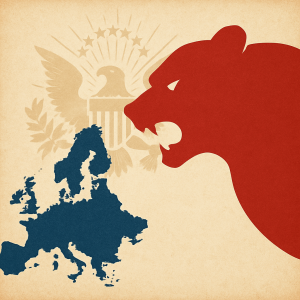He is often called “strong” to suggest even more clearly that democracies, on the other hand, are supposed to be weak. There are those who judge him as “patriotic” and admire him for it. Some others predict that he will soon have reconstituted the USSR, and still others prefer him to the United States, which they accuse of bringing war to Europe by wanting to “annex Ukraine to NATO”.
Everything and anything is said about Vladimir Putin, except that he is in fact lousy, totally lousy, because what is the record of this man whose primary objective is to give back to Russia all or part of the Empire it has lost?
He could not achieve this without joining forces with Ukraine and Belarus, with the two other great Slavic nations historically linked to the Russia of the tsars and then of the Soviets, profoundly Russian-speaking and just as Christian as their giant neighbour. When Solzhenitsyn pleaded for Russia to leave the USSR, he meant that it should do so with its Ukrainian and Belarussian cousins and focus on its Europeanness after having rid itself of Central Asia and the Caucasus, which were, in his eyes, foreign to it.
Ukraine was the cradle of Russia and Kiev the place of its baptism, now a thousand years old. The name Belarussian evokes, in all Slavic languages, a “White Russia”, because this country is the westernmost part of Russia and, culturally speaking, a part of a Slavic area now separated into three independent states.
In other words, there could be no greater imperative for a Russian head of state than to deepen his ties with Ukraine and Belarus. He could only do so by respecting the borders, freedom and territorial integrity of these two countries, in which so many Russian families have close or distant branches, and yet, Vladimir Putin did exactly the opposite.
Like a despot seeking to reclaim lost colonies, he sought to oppose Ukraine’s economic rapprochement with the European Union before annexing Crimea, which had been Russian, of course, but was Ukrainian when Ukraine and Russia separated. He then financed and armed an attempted secession of eastern Ukraine, which he is now reviving, and when the Belarussians wanted to get rid of their dictator, he reimposed him by rushing to his rescue.
From two countries that are as Russophile as they are indispensable to Russia, to which they were so close, Vladimir Putin has managed to turn them into two Russophobic nations that now aspire to integrate into the Western world with the same ardour as the Baltic States did yesterday. Before the annexation of Crimea, an overwhelming majority of Ukrainians rejected the idea of joining NATO. An overwhelming majority of them now support it, even though this does not please at all the European Union, which could have done without such tension with Russia, and even less so the United States, which, since George Bush’s second term in office, has wanted to withdraw from the European theatre for nearly twenty years now, in order to take up the Chinese challenge by concentrating its forces in Asia.
With an ounce of lucidity about this new situation, Mr Putin could have been pleased to see the United States themselves performing this “decoupling” of the two sides of the Atlantic, which the Kremlin had been working on in vain since the very beginning of the Cold War. With two inches of political intelligence, he could have understood the immense economic and diplomatic benefits that Russia and himself could gain from this. All he would have had to do was reach out to the European Union, the Ukrainians and the Belarussians, but no!
All this man from the past was interested in was brandishing the threat of war in the illusory hope of restoring Russia to the place it had had in a century that is no more. All this blind man has achieved is to force the United States back into the European game, to revive the Atlantic Alliance and to strengthen the political ties of the 27 European Union states, which have never been closer than in the face of this mobilisation of Russian troops.
Yes, one might say, but force, violence and war prevail in favour of those who are not afraid to use them. Vladimir Putin is one of them, one adds with horror or admiration, and arms can give back to Russia what Gorbachev had lost by promoting democracy and ending the Cold War.
The objection is not groundless. Thanks to war, Vladimir Putin can indeed win back territory. He did it in Crimea in 2014 and in Georgia in 2008. He can even conquer the whole of Ukraine, but once that is done, once he has entered Kiev, how can he eliminate an armed and Western-funded resistance and, above all, govern, feed and develop a nation that hates Russia as never before and looks ever more to the West, just as the Belarussians already do?
This would be all the more difficult because from Moldova to Kazakhstan, from Georgia to Armenia, from Kyrgyzstan to the young urban middle classes of post-Soviet Russia, the whole of the former USSR, including Russia, is tired of dictatorships and envies the freedoms, economic development and security enjoyed by the countries that became members of the European Union and the Atlantic Alliance after leaving the Soviet bloc. Wielding weapons so much and thinking so little, Mr Putin believes he is regaining the past, but it is his future and that of Russia that he will soon have compromised.



